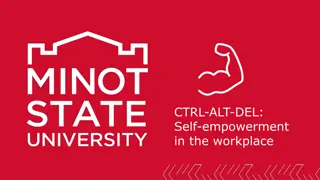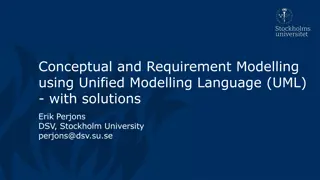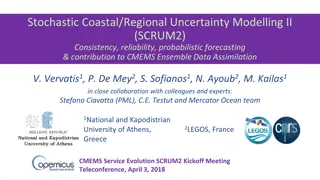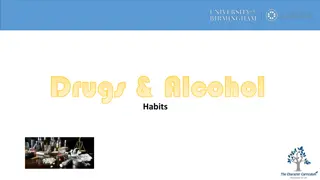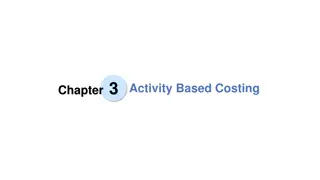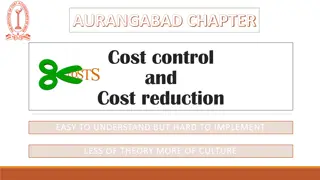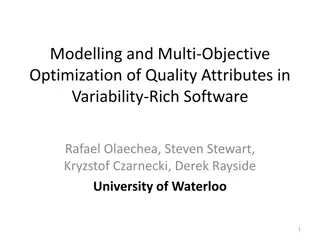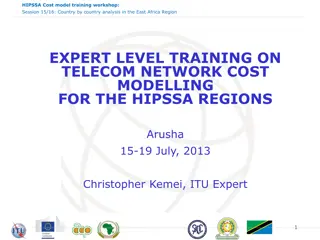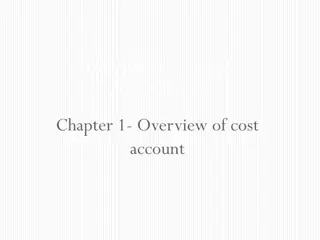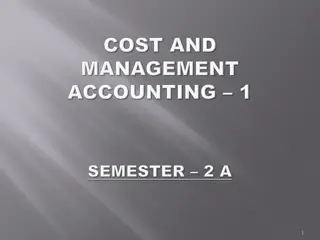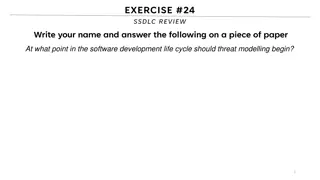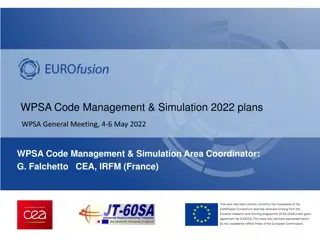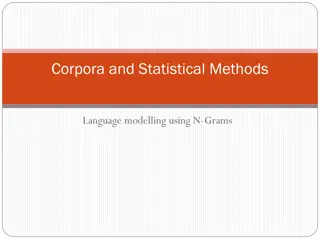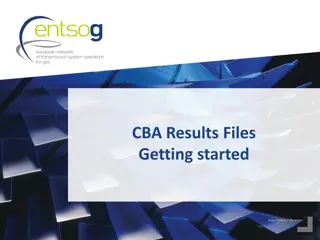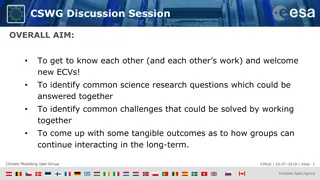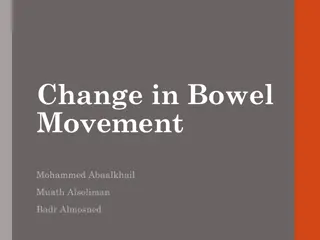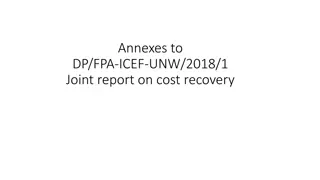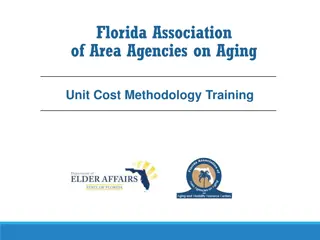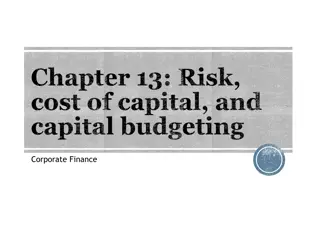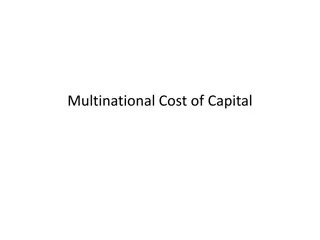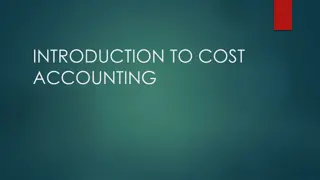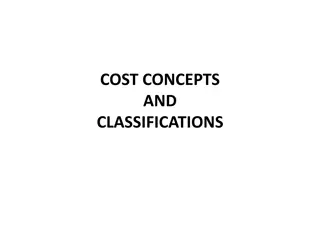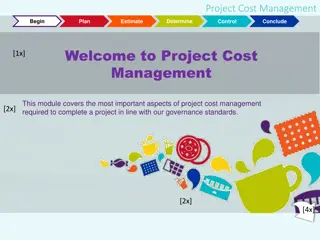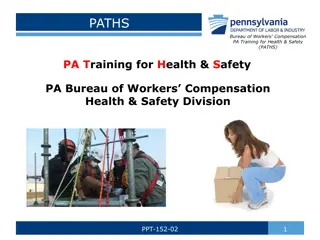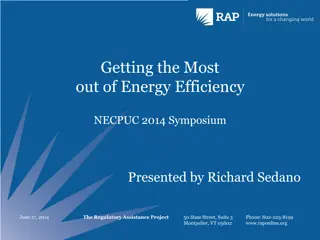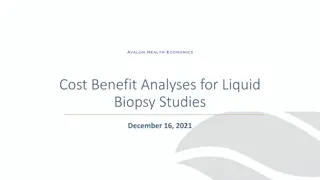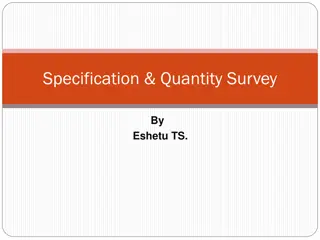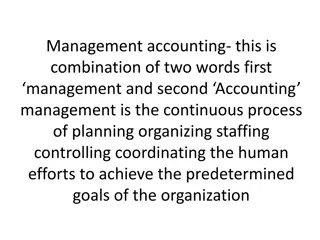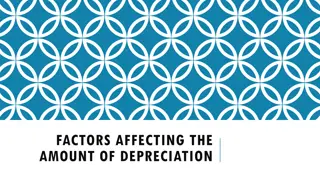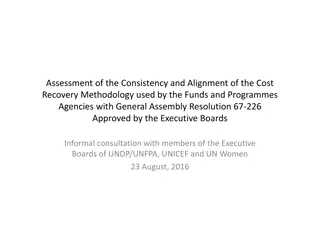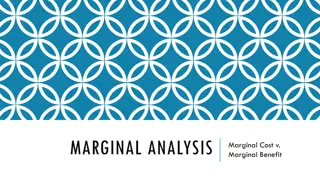Expert Training on The 7 Habits of Highly Effective Cost Modelling
In this workshop session by David Rogerson, an ITU expert, participants learn the key habits of successful cost modelling in the telecom industry. The session covers identifying, illustrating, remembering, and implementing these habits for effective regulatory cost-modelling practices, with a focus on providing examples and a helpful mnemonic for retention.
Download Presentation

Please find below an Image/Link to download the presentation.
The content on the website is provided AS IS for your information and personal use only. It may not be sold, licensed, or shared on other websites without obtaining consent from the author. Download presentation by click this link. If you encounter any issues during the download, it is possible that the publisher has removed the file from their server.
E N D
Presentation Transcript
HIPSSA Cost model training workshop: Session 4: The 7 Habits of Highly Effective Cost Modelling EXPERT LEVEL TRAINING ON TELECOM NETWORK COST MODELLING FOR THE HIPSSA REGIONS Arusha 15-19 July, 2013 David Rogerson, ITU Expert
HIPSSA Cost model training workshop: Session 4: The 7 Habits of Highly Effective Cost Modelling Session 4: The Seven Habits of Highly Effective Cost Modelling 2
HIPSSA Cost model training workshop: Session 4: The 7 Habits of Highly Effective Cost Modelling Agenda Aims and objectives of this session Identifying the habits Illustrating the habits Remembering the habits Implementing the habits 3
HIPSSA Cost model training workshop: Session 4: The 7 Habits of Highly Effective Cost Modelling Aims and objectives 4
HIPSSA Cost model training workshop: Session 4: The 7 Habits of Highly Effective Cost Modelling Aims and objectives of this session Provide an overview of good practice in regulatory cost-modelling Summarise the key elements for a successful process Provide examples to illustrate how any missing or malfunctioning element can cause disruption Provide a helpful way of remembering the 7 key habits 5
HIPSSA Cost model training workshop: Session 4: The 7 Habits of Highly Effective Cost Modelling Identifying the habits 6
HIPSSA Cost model training workshop: Session 4: The 7 Habits of Highly Effective Cost Modelling The Seven Habits of Highly Effective People Title of a best-selling management book by Stephen Covey, that has spawned many others. The Seven Habits move us through three key stages of growth. Independence (make our own decisions) Interdependence (co-operate with others) Dependence (rely on others) 7
HIPSSA Cost model training workshop: Session 4: The 7 Habits of Highly Effective Cost Modelling What are the Seven Habits? 1. Be proactive 2. Begin with the end in mind 3. Put first things first 4. Think win/win 5. Seek first to understand, then to be understood 6. Synergise 7. Renew and continually improve1. Each of these habits is relevant to the regulatory task of constructing network cost models 1. Covey calls this sharpening the saw 8
HIPSSA Cost model training workshop: Session 4: The 7 Habits of Highly Effective Cost Modelling Applying the Seven Habits to regulatory cost modelling (1) 1. Be proactive The regulator must seize the initiative if cost models are ever to be built and be effective 2. Begin with the end in mind The type of models to be constructed depends principally on the services for which cost-based rates are needed. Don t build models unless you have cost-based tariffs in mind; and Determine the services before you construct the model 3. Put first things first Make sure the legal mandate to use a cost model is in place before you build it. 9
HIPSSA Cost model training workshop: Session 4: The 7 Habits of Highly Effective Cost Modelling Applying the Seven Habits to regulatory cost modelling (2) 4. Think win/win If there is not something for everyone you will likely end up in court 5. Seek first to understand If you realise the incentives and take account of the interests of each stakeholder you will retain control of the process. 6. Synergise Use consultative processes to solve problems and find solutions without recourse to the courts. 7. Renew and continually approve Seek to update models annually as new data becomes available, and review the entire model every 3-5 years. 10
HIPSSA Cost model training workshop: Session 4: The 7 Habits of Highly Effective Cost Modelling An alternative way to view the 7 habits 1. The regulator should take the initiative 2. Have a realistic time-plan and stick with it 3. Ensure there is a clear mandate in legislation 4. Assumptions (data inputs) should be verifiable and justifiable 5. The approach should deal separately with methodology and model construction 6. Hold a public consultation process 7. Use consultants to help you, but not too much. 11
HIPSSA Cost model training workshop: Session 4: The 7 Habits of Highly Effective Cost Modelling Illustrating the habits 1 2
HIPSSA Cost model training workshop: Session 4: The 7 Habits of Highly Effective Cost Modelling Brainstorm on each of the 7 habits 1. The regulator should take the initiative Why is this habit important? What might happen if this habit were ignored? Have you any experience that helps illustrate this problem? 13
HIPSSA Cost model training workshop: Session 4: The 7 Habits of Highly Effective Cost Modelling Brainstorm on each of the 7 habits 2. Have a realistic time-plan and stick with it Why is this habit important? What might happen if this habit were ignored? Have you any experience that helps illustrate this problem? 14
HIPSSA Cost model training workshop: Session 4: The 7 Habits of Highly Effective Cost Modelling Brainstorm on each of the 7 habits 3. Ensure there is a clear mandate in legislation Why is this habit important? What might happen if this habit were ignored? Have you any experience that helps illustrate this problem? 15
HIPSSA Cost model training workshop: Session 4: The 7 Habits of Highly Effective Cost Modelling Brainstorm on each of the 7 habits 4. Assumptions should be verifiable and justifiable Why is this habit important? What might happen if this habit were ignored? Have you any experience that helps illustrate this problem? 16
HIPSSA Cost model training workshop: Session 4: The 7 Habits of Highly Effective Cost Modelling Brainstorm on each of the 7 habits 5. The approach should separate methodology and construction of the model Why is this habit important? What might happen if this habit were ignored? Have you any experience that helps illustrate this problem? 17
HIPSSA Cost model training workshop: Session 4: The 7 Habits of Highly Effective Cost Modelling Brainstorm on each of the 7 habits 6. Hold a public consultation process Why is this habit important? What might happen if this habit were ignored? Have you any experience that helps illustrate this problem? 18
HIPSSA Cost model training workshop: Session 4: The 7 Habits of Highly Effective Cost Modelling Brainstorm on each of the 7 habits 7. Make proper use of consultants Why is this habit important? What might happen if this habit were ignored? Have you any experience that helps illustrate this problem? 19
HIPSSA Cost model training workshop: Session 4: The 7 Habits of Highly Effective Cost Modelling Remembering the habits 20
HIPSSA Cost model training workshop: Session 4: The 7 Habits of Highly Effective Cost Modelling A review of the 7 habits of highly effective cost modelling 1. The regulator should take the initiative 2. Have a realistic time-plan and stick with it 3. Ensure there is a clear mandate in legislation 4. Assumptions (data inputs) should be verifiable and justifiable 5. The approach should deal separately with methodology and model construction 6. Hold a public consultation process 7. Use consultants to help you, but not too much. 21
HIPSSA Cost model training workshop: Session 4: The 7 Habits of Highly Effective Cost Modelling Spot the key words Consultants Initiative Approach Process Time-plan Legislation Assumptions Initiative Time-plan Assumptions Approach Process Consultants Legislation
HIPSSA Cost model training workshop: Session 4: The 7 Habits of Highly Effective Cost Modelling Remember: CAPITAL cost modelling is effective cost modelling 23




